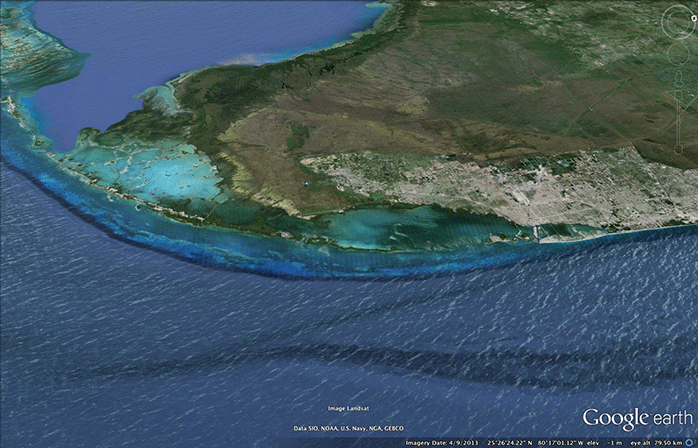Don’t Confuse Sustainable Energy with Adapting to Rising Sea Level
 Today there is an OpEd in the Miami Herald “Climate Change a Threat to National Security” by two distinguished retired military officers, Lt. Gen. Ken Eickmann, USAF (Ret.), and Rear Adm. Neil Morisetti, British Royal Navy (Ret.). It makes two different and very good points, but invites confusing the two: Energy Issues and Rising Sea Level.
Today there is an OpEd in the Miami Herald “Climate Change a Threat to National Security” by two distinguished retired military officers, Lt. Gen. Ken Eickmann, USAF (Ret.), and Rear Adm. Neil Morisetti, British Royal Navy (Ret.). It makes two different and very good points, but invites confusing the two: Energy Issues and Rising Sea Level.
Yes, it is worthwhile to look at energy to reduce greenhouse gas emissions, which are at the root of the warming. “Sustainability” in terms of energy production, transportation, building design and infrastructure is a very worthy effort.
But sea level will rise anyway, largely unaffected by what is done in Florida regarding energy.
The level of carbon dioxide now at 400 ppm (parts per million) is 40% higher than in millions of years and directly tracks with long term global temperature change, which correlates with the amount of ice on the planet, and long-term global sea level changes. Miami should set a good example and reduce emissions and look to sustainable renewable energy, but should recognize that the CO2 gets mingled as a global average and can not stop sea level rise.
Warmer seas mean melting ice and rising sea level. And the U.S. National Climate Assessment they reference, in fact cites sea level as high as 6 feet by end of this century, not the four 4 feet in their piece. That overlooks the fact that the projections tend to keep getting increased and that the news from the ice sheets on Greenland and Antarctica is very worrisome. Also in the early part of the next century sea level will keep rising. Infrastructure and many buildings last more than a century.
Miami may be at the top of the list of cities in terms of economic exposure to ever-rising sea level, but let’s keep in mind, this threat applies to every coastal community on Earth, from Boston to the Bahamas, from Manila to Monaco, and San Francisco Bay to Singapore — and far up tidal rivers to cities like London and Washington D.C. Unlike storm surge, rising sea level will not recede in hours. Higher sea level will persist for at least a thousand years, making it essentially permanent.
The point is we need to plan for ever-rising sea level, simultaneously as we address the energy issues. If we don’t work on the energy issues, the warming will almost certainly happen even faster, making sea level rise even worse.
As I explain in my presentations and in “High Tide On Main Street”, the two efforts are slightly connected, but mostly separate. We must do both things with similar vigor.
- Adapt to rising sea level as a global challenge that is quite separate from preparing for storms and other short-term flooding,
- Pursue various efforts to be more sustainable, with a focus on how to reduce the greenhouse gas emissions that have caused the warming.
Regardless of how much energy is used and how it is produced, sea level is rising, which will tend to move shorelines far inland over the next few centuries. The process has just started.
From a national security perspective, adapting to rising sea level is every bit as important as reducing greenhouse gases. Slowing the rate of warming, will hopefully delay the catastrophic warming, that will melt the ice, and raise sea level.
